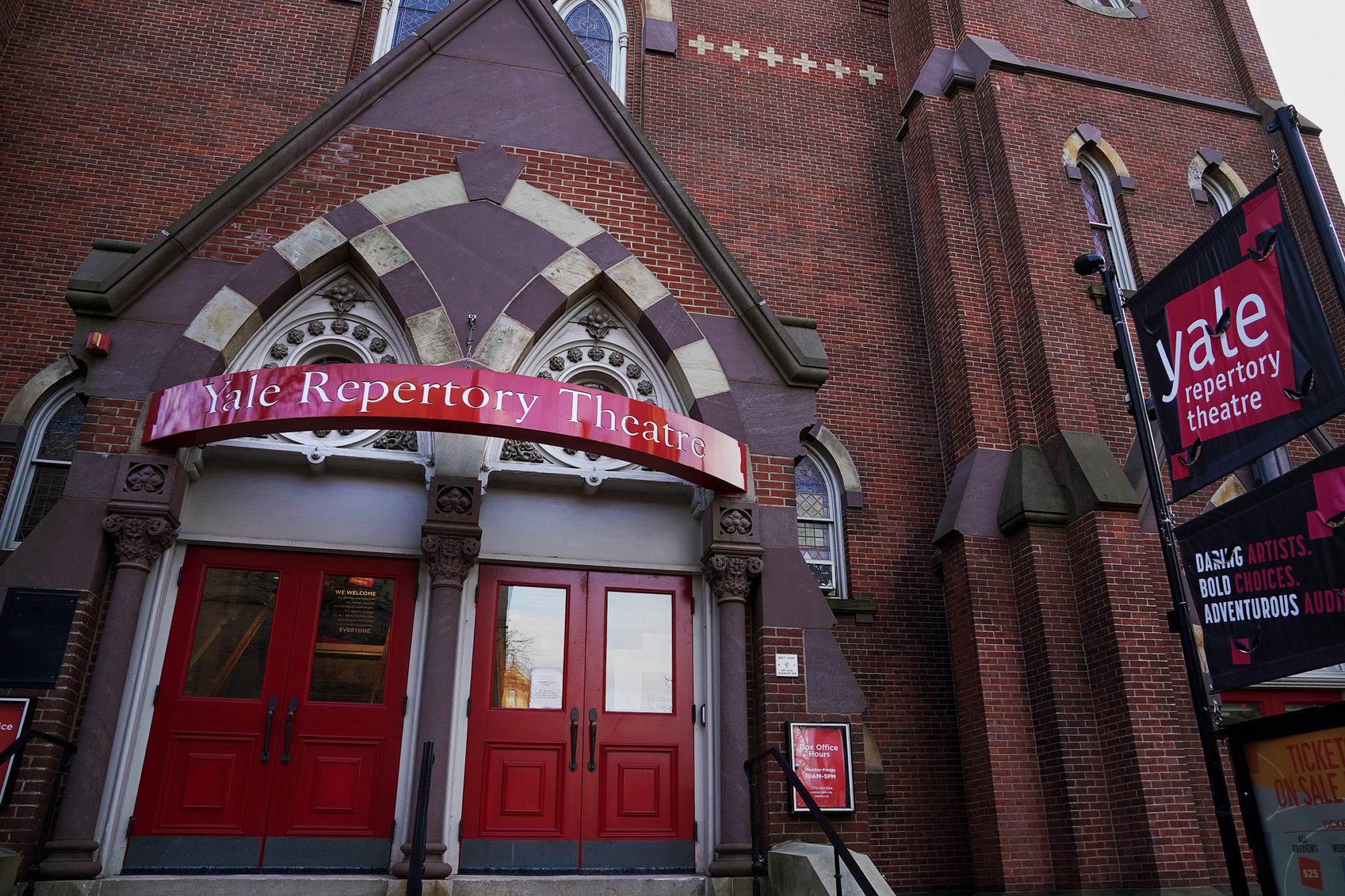Review: “Who’s Afraid of Virginia Woolf” is entrancing chaos
Yale Repertory Theater begins its 2022-2023 season with its production of Edward Albee’s “Who’s Afraid of Virginia Woolf”, staged from October 6 to October 29.

Tim Tai, Photography Editor
Yale Repertory Theater’s production of “Who’s Afraid of Virginia Woolf,” previewed on Oct. 6 and will continue playing until Oct. 29.
Directed by Artistic Director of Yale Rep and Dean of the David Geffen School of Drama James Bundy DRA ’95, Yale Rep’s current production is the first professional production of the Pulitzer Prize winning play in Connecticut in 30 years. Edward Albee’s production was first staged in October 1962 as an original Broadway production. The over three-hour long play includes two 10-minute intermissions.
The plot focuses on the complicated marriage of Martha, played by René Augesen DRA ’96, and George, played by Dan Donohue, a middle-aged couple. Returning from a faculty party at the university where George is a history professor, the couple arrives home at 2 a.m.
Despite it being the middle of the night, they are waiting for their guests: a young, naïve couple: Nick, played by Nate Janis ’14, and Honey, regularly played by Emma Pfitzer Price but in the Oct.18 performance played by Rebeca Robles DRA ’24.
Martha, who is the daughter of the university’s president, has invited them over per her father’s request. Through complex conversations lasting until dawn combined with extreme amounts of alcohol, the audience, alongside Nick and Honey, witnesses Martha and George’s unstable relationship dynamics in disbelief.
Taking place in only one setting, the play comes to life with the vibrant personalities of the drunken characters.
Augesen’s Martha is a dominant character under the influence of scotch and cigarettes. Augesen, who is a graduate of the David Geffen School of Drama and has previously appeared at Yale Rep multiple times, portrays Martha magnificently and captivates the audience through her strong, passionate performance. The emotional rollercoaster Augesen expertly executed forces the audience to question the contrast between the realities and illusions of our own relationships.
Donohue’s George, on the other hand, at first appears unassuming. He reveals his true self, especially in the second and third acts, as Donohue brings George’s haunting mind games to life. Tension arising from arguments about his inadequacies in family and academic career builds up as the performance proceeds and their relationship deepens.
The pair are the seemingly perfect American couple: young, rich, hard-working, happily married and planning to have kids. Nevertheless, problems in their relationship are uncovered throughout the night.
Robles’s Honey is energetic and naïve, but sick throughout most of the play. Her drunk giggles and innocent perspective are what build her personality, while Janis’s Nick is more straight-faced and defiant.
The comparison between the two couples allows us to view emotional extremes in past and future generations.
All three hours are set in Martha and George’s living room, designed by scenic designer Miguel Urbino — designer at the David Geffen School of Drama.
The room Martha describes as “a dump” reveals details about the couple’s living habits. With books and paintings on either wall, the small living room also includes their essential drink cart. The messy atmosphere foreshadows the downfall of the married couple’s relationship.
The final scene with the bright orange sunlight shining on George and Martha’s traumatized faces is especially impressive. The play ends on a more horrific note, as the couple decides the games should come to an end and Nick and Honey leave. The audience is left in confusion as they try to distinguish between truth and illusion.
Perhaps it’s due to the alcohol they drink as if it is water, or due to the fact that it is two in the morning, but the two couples act like they’ve known each other forever, sharing stories without filter.
At times it is hectic and disturbing, yet you still cannot take your eyes off the actors. The emotional chaos presented through screaming, laughing, sobbing, vomiting, kissing and more is overwhelmingly mesmerizing. Through the talented acting, the audience is pushed to feel afraid of Virginia Woolf.
Yale Rep’s “Who’s Afraid of Virginia Woolf” will be available in Open Caption on Oct. 29 at 1:30 p.m.







